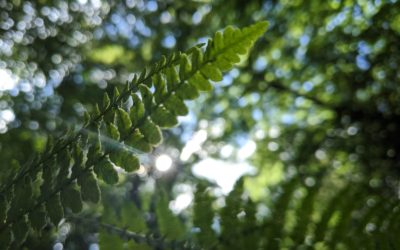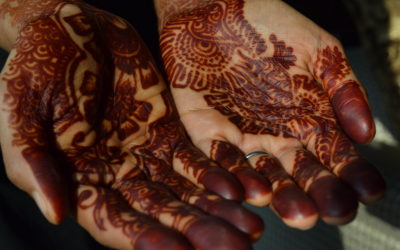This summer during the Trans Pride Brighton festival, I was invited to deliver a keynote at their Annual Trans & Non-Binary Conference. I spoke about the birth of Trans Pride Brighton, learning from our mistakes and the inclusion of trans people of colour and trans Muslims.
You can view a stream of the keynote here.
About:
As a person whose identity sits on the intersections of many visible oppressions and privileges, Sabah will be talking about the intersection of queerness and trans/gender and race, navigating a white heteronormative world with a gender non-conforming body with brown skin, with a focus on being Muslim – an identity that is misrepresented, misunderstood and misjudged. Sabah will be starting a dialogue that is now more relevant than ever between Muslims and non-Muslims on community and pride. Pride events have often been the marker of progress for a community, and a call to action for more. Who really makes up this community? Who is allowed to be out and proud? Sabah will draw upon their experiences of founding Trans Pride Brighton and creating Queer Picnic, London and talk about what true inclusion looks like, how we can empower our community and redefine pride.
Transcript:
I was marching through the streets of London two weeks ago; I had joined my dear trans youth and supporters of Gendered Intelligence for the Pride in London Parade.
I was marching through the streets of London holding a sign. It says: Trans. Muslim. Happy.
I made this sign not because I’m proud. Not even really because I’m happy. But because I’m angry. I’m angry that I had to make this sign at all. That I had to explicitly say, I’m here because I’m trans. I’m with you because I’m trans, and you’re trans and that’s why I’m a part of the community. Your community.
Because yeah – I’m also Muslim. And even though that comes first, because, my skin colour comes first, my name comes first – I’m always Muslim AND. Here at pride, it comes second – I’m trans and …Muslim. At your pride, it comes second.
Oh and my pride? I’m not here for pride. I don’t show up for pride. I stopped going to Brighton, London, Manchester, Birmingham Pride long ago.
It feels like pride doesn’t even exist in my world, I don’t think people like me are allowed to feel proud. Transgender Muslims. We aren’t allowed to feel proud.
Unless we’re trans first. Or mayors first. Or star bakers first. Or Olympic champions first.
Unless we are just like you, first. I’m trying to think of the last time I saw a Muslim on TV who was happy. A Muslim who was Muslim first. And happy.
Yeah I’m not here for pride. My pride isn’t radical. My pride is assimilation. My pride is being ‘just like you.’ My happiness, now maybe that’s radical; happy trans Muslims? I think that’s revolutionary. My happiness is revolutionary.
I was marching through Trafalgar Square holding this sign. A parade steward in a pink branded t-shirt looked up, and then at my face and started to shake his head. He mouthed, no no no. He shook his head at me as I pushed this sign in his direction, underlining with my finger: Happy.
“I’m happy!” I yelled. Shrugging my shoulders. Pointing with conviction. Smiling through fury.
He shook his head with fury. I forced myself to walk away, I was there with my trans youth, I wasn’t going to make a scene that was about me when I was there for them, to amplify their voices and defend their pride. That’s not how I do youth work. Besides, my pride wasn’t hurt or wounded by this man. But I think my happiness was. Something hurt.
This steward guy wasn’t white by the way. He was South Asian. And that’s probably what hurt the most. I had people in the crowd holding their arms out to shake my hand –
I don’t know, white people think it’s brave but at the same time kind of pity me, assuming I’ve had to overcome so much adversity? When it’s really attitudes like that which create adversity? Just saying.
And then this brown guy, who isn’t even a part of the parade or the crowd, he’s just there at the fence. And I’m thinking. How dare you.
How dare you choose to work at an LGBT event, a London Pride event and not expect to see Muslim people. How dare your solidarity or allyship only extend for white LGBT people. How dare you colour pride all one shade, and cover me in all your shame. How dare you shake your head at me. How dare you refuse to acknowledge me, my faith, my identity, my happiness.
Yeah it sucked. But so did white people saying ‘I love you!’ They love me because they think I made it, I made it out of the closet and out to London pride. It kind of just reinforced to me what people really think of pride, the white people in the audience and this brown guy by the fence. It revealed what they think a proud LGBT community looks like. Who they think they are, where they fit, where I don’t fit. More so, it revealed to me who they think a proud LGBT community should be.
Pride has become the marker in the west for community progress. The end goal for adversity. Because what’s the opposite of pride? Shame? But progress for whose community? Our history is white-washed, our pride is pink-washed. And our call to action exists within heteronormative and homonormative constructs. We can get married now. So the only call for change is a costume change, this is Pride with a capital P, A R T Y. Yeah I don’t hide my feelings about Pride with a capital P. These aren’t recent feelings either. In fact the moment I realised I wasn’t white and I wasn’t homo was when I felt like I had to try harder to fit in with pride, and actually, try harder to feel proud.
I realised that fitting into Pride with a capital P was never going to work, because these moulds aren’t made for us to fit into. At this point of my life, I was living here in Brighton, sharing a flat with two lesbians and their puppy in Norfolk Square. I had a solid presence in the LGBT community and Brighton trans community. And I had a voice because I shouted. Because I was desperate. Because I had the energy. Because I was desperate.
One day, in a coffee shop opposite St Peter’s Church, I was sitting with a few trans friends and their friends, some important amazing people, We were all desperate. Brighton Pride was coming up and we were running out of energy. We were tired of being constantly excluded and tokenised. We were tired of just being the T in LGBT. We were tired of coming last, being an after-thought, being spoken over. And then we started shouting.
What if??? What if we had our own march through the streets of Brighton? I laughed at the thought. I pictured ten or so visible trans people walking up North Street, with a few banners, grey sky, wind blowing, seagulls teasing. I laughed, and then I got scared. Could we. Can we have our own pride. Can we redefine pride. Can we.
We can. And we did.
That conversation led to a quick succession of meetings with people who all wanted to make this happen. Even cis people. I dislike using the term allies, but they were such good allies. We had Nicky Cambridge who worked in Brighton & Hove city council and Jayne Babb who worked for Kemp Town Carnival. And on our founding team we had a true superhero, Stephanie Jayne Scott, who is a pioneer of the Brighton trans and bisexual community. And Phoenix Ariel Thomas, a queer, non-binary academic babe. This was Trans Pride Brighton.
We had voices, we had our voice. Trans Pride Brighton was led by these voices. And when a movement is led by voices and not just one voice, it represents people and not just one person. That’s true inclusion. When there is space for everyone at the very conception of an idea. The first Trans Pride Brighton was incredible, it changed everything for me and I’d like to think it did for others too. It wasn’t perfect, no. But I thought, there is a person of colour at the front of this. That person is me. And I won’t be quiet. I can’t. The following year I took to the stage and shouted about racism, I shouted about trans people of colour, invisibility, hypervisibility. Our safety, our passion, our pain. We need to do more. We’re here and we’re a part of the trans community. You need to do more.
At the very same moment, my queer and trans friends of colour are being attacked online on Trans Pride Brighton turf – nothing is being done; our experiences belittled as people of colour, cultural appropriation of black culture being dismissed and disregarded as not something Trans Pride Brighton need to address. Read – tackling racism and acknowledging people of colour are a part of our trans community is not something the committee needs to address. More so than that, my voice was taken away, the committee became one voice of Trans Pride Brighton, but that voice was post-racial, that voice was colour-blind. That voice said sorry to the white people who felt alienated and excluded. And that voice was oh so familiar. That voice is: no blacks, no spice, no rice on Grindr profiles. That voice is: where are you really from. That voice is: it’s not a bindi, it’s fashion. That voice is: why can’t I touch your hair. That voice is I’m just being nice, I’m appreciating your culture, it’s just my preference, I can’t help what I like. That voice is micro-aggressions, racial, anti-black, Islamophobic micro-aggressions.
I knew what happens next to people of colour. We ran out of energy and I burnt out.
So why am I talking about Trans Pride Brighton? This isn’t a warning, or a smear campaign. I love Trans Pride Brighton, it’s my baby. Trans Pride Brighton has definitely evolved. The committee has learned. I wouldn’t be speaking so honestly about this if I didn’t think things had changed.
But we need to be speaking about our mistakes. We need to. Because this is the only way we are going to learn. This is the only way our young people will learn. If my older friends of colour had spoken to me about the real reasons they left Brighton, I would have learnt, this isn’t just one experience that’s happening to just me, this is a cycle, that needs to be broken. The real reasons they left being and including cultural appropriation at by white queers at The Cowley Club. Sounds familiar, yes. Queers of colour shouting and fighting and being pushed out and pushed down. Sounds familiar, yes.
We need to talk about our mistakes and learn from our history. Because if we don’t learn from our past, and remember our past, we are going to repeat it. And I’m not talking about the past that starts with the stonewall riots, but that past that starts with the trans women of colour being pushed out and erased from a movement.
We need to speak about our mistakes and own them. Because we are failing black people and people of colour and Muslims. We are failing our youth. They need to learn from our mistakes, because so far, we haven’t. And that’s okay if we haven’t yet. That can change. But do you know how powerful an acknowledgement is? Just hearing, yes that shit was racist. Or damn, we really fucked up. Even just hearing, I’m sorry. Not, I’m sorry you were offended. Not I’m sorry if this upset you. I want, I’m sorry, full stop. And then just listen.
What are the needs of your community? Whose voices are speaking? Listen harder. Whose voices are missing? Think about how the world looks through your eyes, through your lens. Now take off that lens. Look. What is it made of? White male cis gaze?Pull your lens apart. Pull apart the systems in place, with love and with us. Now, ask yourselves what are the needs of your community? How can we empower and rebuild our community? How can we redefine pride? It’s crucial to embed inclusion in community activism and when rebuilding LGBTQ spaces but only if it’s done right. And embedding inclusion is more than just saying it. It is a continuous process. It looks like people in power giving up power, giving up space and empowering others. Being honest. Being vulnerable. Because we don’t lose power, we don’t lose privilege. But we do grow. We grow community when we stand with black trans people, trans people of colour, and trans Muslims.
We can be empowered without using our power in a way that hurts people or silences people.
Ask yourselves, am I comfortable?
Because nothing changes when you feel comfortable. You stay there. And you cannot take the parts of this that are comfortable – that is not inclusion, that is not intersectional. Intersectionality builds bridges, and we must keep going.
Simply because we cannot have equality for everyone with justice for some.
If you want to know how to support LGBT Muslims, start by supporting Muslims.
If you want to be a better ally, start by fighting for people of colour.
Because we don’t just exist within the LGBT and trans community.
We exist outside of that, in our own communities, in different spaces.
And when we are under attack, your community is under attack too.
When I suffer, your community suffers too.
Your support for us should not depend on the shared use of four letters or even a rainbow sticker.
Your allyship to us should not depend on anything.
Don’t wait for us to be ‘just like you’It is necessary that you fight for our lives too.
It is necessary that you are not a part of a society that hates Muslims.
It is necessary that you tell us black lives matter too.
This is not your average talk on pride and trans inclusion. This is not your inspiration. This is your call to action.




0 Comments